#Ivo van Hove
Explore tagged Tumblr posts
Text
(apologies to my followers here for an off topic post, but i want this to show up in some tags (for once) and my personal account is... hidden from search, lol.)
i recently recovered my old hard drive from my dead laptop, including recovering my theatre bootlegs. one of which is something i've seen people asking about for the past couple of years (and had been trying to find again myself without luck): a BBC4 broadcast of the 2015 Barbican production of Anne Carson's translation of Antigone, directed by Ivo van Hove. it was broadcast twice and never released on DVD or permanent streaming. there used to be public links around, but all of them are dead as of right now that i could track down.
so i have uploaded it to archive.org now i have it again!

i had to convert the mkv to mp4, for reasons of 'my broadband is shit and uploads too slowly', but it's still good quality. anyway, i enjoy this production a lot. i want more people to watch it! i'm glad i could get it back and upload it somewhere.
#antigone#anne carson#sophocles#theatre#ivo van hove#juliette binoche#greek tragedy#classics#video gift#tagamemnon
1K notes
·
View notes
Text
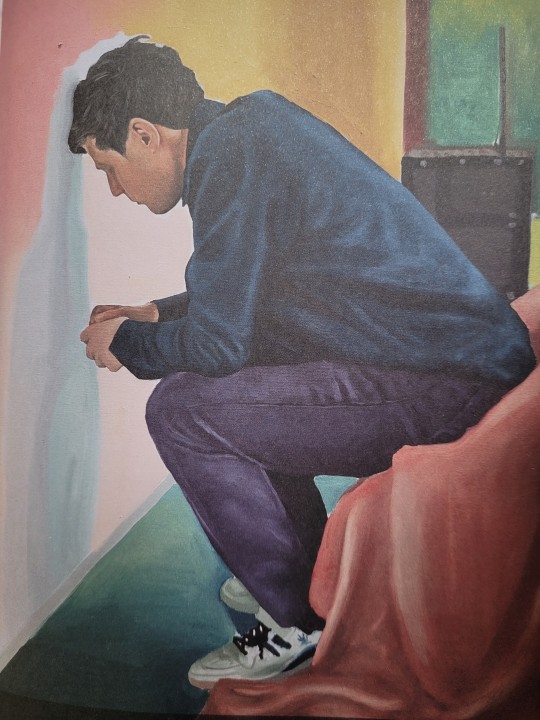
jude after sickness //
"things get broken and sometimes they get repaired, and in most cases, you realise that no matter what gets damaged, life rearranges itself to compensate for your loss, sometimes wonderfully"
#a little life#a little life play#hanya yanagihara#james norton#saw this on tues and now its thurs#im still shattered and cant move on with my life#theatre#london#ivo van hove#jude st francis#sue's things
649 notes
·
View notes
Text
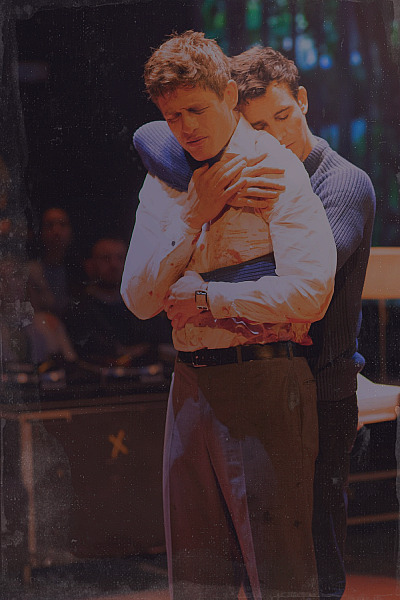
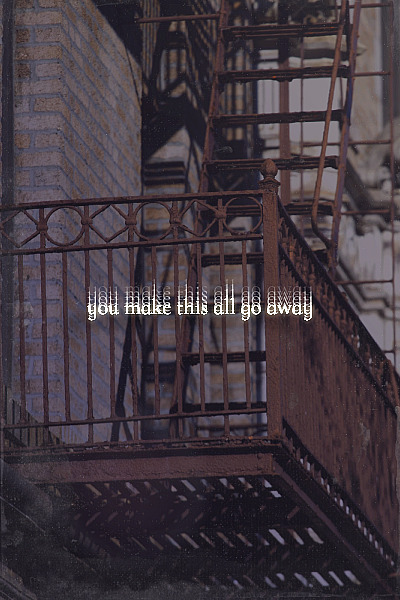

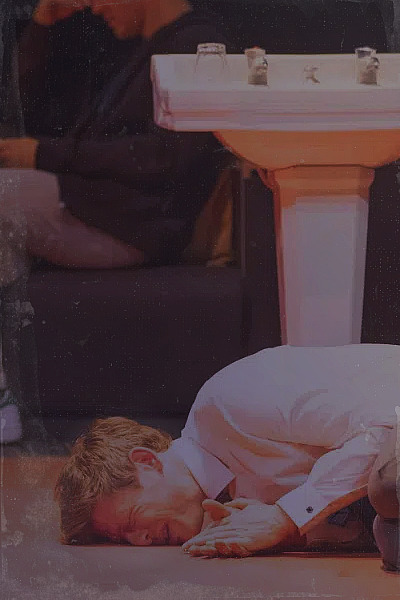
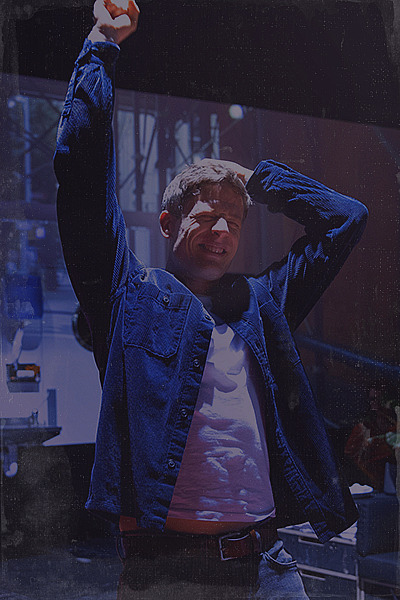
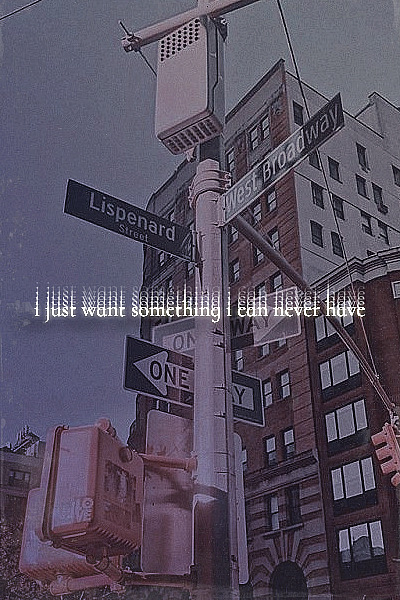
watched the play version of a little life this week and i haven't been able to stop thinking about it since it is consuming me
#a little life#all#hanya yanagihara#james norton#jude st francis#willem ragnarsson#jb marion#malcolm irvine#a little life play#west end#book edit#a little life edit#theatre edit#play#lispenard street#luke thompson#nine inch nails#ivo van hove
212 notes
·
View notes
Text
saw a little life the play and it's just,, the slow sullying of the shirt until his mess is so large that it spread onto everything. just. a smear of blood under willem's lips, fingerprints on the clothes of other people, the floor never quite being clean. and yeah, on that matter, jude cleaning himself up off of the ground, the people he loves doing the same for him in the background, on bended knee. and it's just, through everything, the people who love him always offer a hand, always help him up, always bring him to his feet, for as long as they can. going fucking feral.
#a little life play#a little life#hanya yanagihara#ivo van hove#james norton#a little life play spoilers#actually physically unwell at the mere thought of this exceptional piece of art#theatre#literature#mine
189 notes
·
View notes
Text
A Little Life - Harold Pinter Theatre
For anyone who does wish to attend this production, please don’t take the content warnings lightly - the self-harm is graphic and two characters have full-frontal nudity.
I (Freddie) attended the matinee production at the Harold Pinter Theatre in London on Sunday 7th May
THIS REVIEW/ANALYSIS DOES CONTAIN SPOILERS FOR BOTH THE NOVEL AND STAGE PRODUCTION, SO PLEASE BE AWARE!
Trigger Warnings: talks of self harm, child abuse, sexual assault, domestic abuse and more
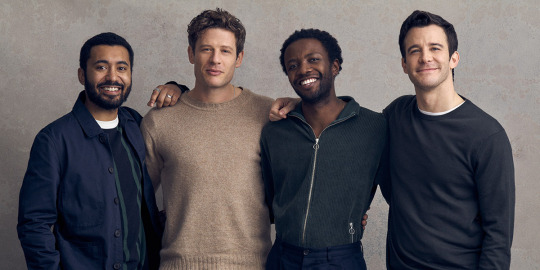
There’s no discernible reaction from the audience when Luke Thompson as Willem makes his entrance onto the stage. He’s wearing a dark blue hoodie, the hood pulled up over his hair - perfectly innocuous, nothing spectacular or grand as he walks about the stage. The lights are still bright, the audience is still chatting, laughter is filling the room. And Luke Thompson as Willem is onstage frying himself some bacon and eggs.
What has struck me again and again whenever I reread A Little Life - because, yes, I get a masochistic kind of joy from putting myself through that pain repeatedly - is the intimacy of it. Naturally with any book, the reader is granted the chance to feel close to the characters, to garner a look at their lives behind the veil. But if you were to ask me, I would say that there are very few - if any - novels that create this illusion as Hanya Yanagihara’s does. For 813 pages you are allowed to experience this life as they are, to experience snapshots of their lives - the good, the bad and the unimaginably horrifying - even as the rest of New York, the rest of the world, goes on as normal, with no thought spared to what is occurring within the walls of Lispenard Street and their subsequent homes.
The awareness that despite what Jude is revealing to the readers about his past, the beyond nightmarish history he has, the world is continuing to go on as normal was perhaps the aspect of the novel I adore so much that I was most scared about losing in adapting it for other mediums.
But from the moment Luke Thompson stepped onto stage, transformed into Willem and beginning to go about his daily life, with the moving images of New York streets surrounding him in his apartment, I knew that my worries had been unfounded. Ivo Van Hove with his unbelievable direction paired with Jan Versweyveld’s set design had found a way to maintain that understanding.
Throughout almost all of the performance, there is no moment of stasis. Be it JB and Malcom painting and working at desks on the right side of the stage, or Andy reading his book in his clinic, or the ever-present Willem and Harold.
The former is always in the same spot on a sofa at the back of the stage, flipping through scripts, determined to make it big as an actor, pouring all of his attention and focus onto learning the lines, dedicated to making his dream a reality, and yet always there ready to support Jude. In the second act, Luke Thompson takes the exact same pose when listening to Jude revealing the details of his childhood, desperate to understand his best friend, and at this stage his lover, in the same way he had been desperate to make it as an actor.
Harold, however, spends much of his time on stage left, stationed at the kitchen set up. Constantly in movement, cooking several dishes throughout the course of the play. A reference, perhaps, to the number of Thanksgivings Jude is reported to have spent with him and his wife, Julia (absent from this adaptation).
Despite the eternal loneliness that James Norton as Jude exudes with just his presence, he is only truly alone for a few moments - the harrowing whisper of “x equals x” that he gasps out after Elliot Cowan as Caleb leaves him naked in the street. It is then that he is alone onstage, laying in his blood, until he is retrieved by his loved ones and taken to rest on Andy’s hospital bed.
It is this detail of James Norton’s performance as Jude that I found the most powerful - which is saying something, considering that I am considering suing him for emotional damages, hasn’t anyone ever told him to think about using his acting powers for good, rather than evil? He captures a side of Jude that I had not previously considered - Jude views himself as a side character in his own life. He doesn’t feel worthy of attention, of his friendships, he is lonely in spite of being surrounded by those he loves the most and as a result feels unable to call out and ask for the help he desperately craves but does not believe that he deserves.
The contrast between this and the fact that Jude is always centre stage is immense and almost disconcerting to watch and caused me to spend the entire performance practically begging him in my head to just turn around, they’re right there!
But this desire to be helped and to be heard is brought to life by the presence of Nathalie Armin as Ana. The first person in Jude’s life to truly care about him, and the only female in this adaptation of the novel. Armin has a commanding presence on the stage, even as she is a mere figment of Jude’s imagination. Dressed in all black, a stark difference to the bright set, allowing her to melt into the darkness when the spotlight focuses on Norton.
In many ways, Ana vocalises the audience’s own thoughts - pleading with Jude to confide in his friends, desperate to stop him from harming himself further, and the relief in Armin’s expression as Jude finally tells Willem his story.
The choice to keep the cast small causes a heavy weight to be put on Elliot Cowan’s shoulders, as he is tasked with portraying three different, truly heinous characters. Even without the costume changes, however, I truly believe it would be possible to tell which of the three he was in each scene.
Cowan gives truly fantastic portrayals of each of the villains of Jude’s life, as Brother Luke he shows the softer touch which allowed for him to manipulate Jude in his innocence, he never handles Norton roughly when playing the part of Brother Luke. Carefully pulling him along, coaxing Jude to trust him to the point that the child does not realise just how wrong it is what Brother Luke asks of him.
This acting from Cowan makes Jude’s words all the more heartbreaking in Act 2 when talking to Willem, as the audience is able to see why Jude insists that Brother Luke was different, that he did love him.
When taking up the role of Caleb, however, he becomes the manifestation of everything Jude believes about himself. He has none of Brother Luke’s gentleness, but all of his intensity and possessiveness. The last that we see of Caleb, is when he lifts Jude up by the arm, Norton’s body used to reflect the words he says - “x equals x”. Being with Caleb has brought to life Jude’s darkest thoughts of himself, and Jude views this as proof that no matter what he will always be the same. Damaged and unlovable, to be blamed for everything he had been subjected to in his youth.
As Dr Traylor, Cowan’s words are clipped and straightforward. He is the most detached of Jude’s abusers, not caring for his name and only referring to him as “a prostitute” and reinforcing what Jude already believes about himself. It is not until Jude’s “release” that we see any true kind of emotion from Dr Traylor. Cowan shows Dr Traylor with a manic kind of joy upon forcing Jude to run from him, all the while on the tail in his car. The chase scene is long, and dramatic with the incredible musicians rising in volume and intensity with their instruments. The length of the scene forces thoughts back to Jude’s earlier response when JB asked about his legs - “I used to run cross country”.
In all of his roles, Cowan has the same commanding presence onstage as Armin. The moment he leaves the wings, regardless of who he is in that moment, the audience’s attention is drawn to him. As though by sheer glares and willpower we will be able to change Jude’s story, that we as mere observers will be able to push against Cowan’s slow, purposeful steps and keep him away from Norton.
Zubin Varla and Emilio Doorgasingh gave masterful portrayals as Harold and Andy, respectively. They are markedly different to the presence of Willem, Malcom and JB - in what proves to be a very physical play, Harold rarely touches his son, while Andy only does so as necessary in his medical examinations of Jude.
This respect for Jude’s boundaries when it comes to physical contact is what truly sets Harold and Andy apart from the other older figures in Jude’s life (those villains played by Cowan). Varla’s portrayal of Harold is always evaluating his own movements, always second guessing himself before moving towards Jude - he does not seek out the easy, casual contact shown by the other three young adults. But when Jude comes to him for comfort, Harold is always eager to provide it.
The final scene of Harold and Jude embracing - Jude in his wheelchair, Harold knelt on the ground in front of him, with the rejected trays of food scattered on the floor around him - when Norton practically falls into Varla’s arms, sobbing into his shoulder, as a screen slowly comes down to hide them, JB on the outside, is one that I believe will stay with me for years to come.
There is an emotion in Varla’s voice when he confides in the audience the story of Jacob, his first son. And in that closing scene we are forced back to that monologue, when he confesses to anyone listening that when Jacob died, there was a little part of him relieved, as that meant it was over. And although it is heartbreaking, it is this statement that makes it no real surprise that when the screen lifts again, Harold is alone in front of that wheelchair to report Jude’s suicide.
Where Armin’s Ana shows the sympathetic side of the audience, the aching desire to hug Jude and promise him it will be okay, to protect him both from the world and himself, Doorgasingh’s Andy exhibits the rougher side of it. His frustration at Jude’s abject refusal to accept help, his anger at watching someone he loves destroy themselves. The hopelessness he feels when his advice goes unnoticed, and his frequent calls to Harold and Willem - often screaming at the two people Jude is closest to, desperate for them to be there for him more.
Andy does not have the same stage presence as many of the other characters do, instead he - and the same can be said for Malcom - almost fades into the background at times. But they are there, ready to pick up the pieces. Both Doorgasingh and Wyatt are spectacular in their characterisations. In the novel, Andy and Malcom show an awareness that they are not the most important people to Jude, that they cannot help him in the ways others can, and in this adaptation, the actors bring that feeling to life.
They are there, working in their own lives, on their own projects. Malcom quietly sees what Jude refuses to acknowledge about his worsening condition and accommodating for it even despite the push back of his best friend. And Andy who can be seen pacing at the side of the stage, calling Jude when he can sense everything is getting too much for him - they are both there for him in their own quiet ways, and their loyalty and love for Jude is never questioned by the audience. It is also important to note that in this adaptation of the novel, neither of these characters address the audience directly - the only two whose focuses are solely within the story with no fourth-wall breaks.
Omari Douglas as JB, on the other hand, stands out more than anyone. First as a result of his costumes - often more brighter than those of his castmates - and then just as how he presents himself. Anyone who watched his performance in It’s a Sin will recall how Douglas’ presence demands to be noticed, and this is carried forth onto the Harold Pinter Stage. He captures the heart of JB’s character - desperate to be heard, to be needed by his friends. Charming in his own way, despite how his messy character causes him to betray his friends at several points in the story.
Douglas transitions well from how JB is around his friends - brash, loud, confident - to how he truly feels when talking to the audience. His voice is softer, he somehow seems a little smaller as he talks about watching Jude, how he feels Willem doesn’t value his friendship as highly as the others, how he feels they don’t need him anymore.
While JB’s drug addiction is rather rushed in this adaptation - it’s discussed at length in the novel - Douglas eloquently displays his anguish to the audience, his desperation to quit. A previously difficult to like character, after having seen him mock Jude’s disability, and betray his trust, the audience is able to empathise and understand him better. And when it is just him and Jude left at the end of the show, Douglas doesn’t say anything, but takes up the same space as had previously been filled by Willem and Malcom. He quietly watches Jude - just as he had before with his painting, only this time, it’s out of concern for his friend, rather than concern for his career and viewing him as a muse.
I have already mentioned how this production brought me to tears on several occasions, however none made me sob more so than Luke Thompson’s monologue at the end before his car crash. Having already read the book several times, I had known that this was coming and yet it didn’t stop me from hoping that somehow I���d misunderstood the plot point and that Willem did actually survive. So when Thompson took centre-stage and I knew what was next, my sister took my hand as the two of us prepared ourselves.
Beyond the tear-jerker of a monologue, when I later considered the adaptation as a whole I wondered over the choice to mention Hemming at that point. Perhaps this mention worked some some of the audience, however for me I felt it should have been mentioned earlier, as it is in the novel. With Willem only mentioning Hemming before he dies and only in reference to Jude, it caused me to reflect somewhat poorly on their relationship. It’s a minor point about the adaptation, however I do wonder if mentioning his older brother earlier, before Jude himself begins to use a wheelchair, it would have been more impactful.
I could sing praises about the chemistry between Norton and Thompson onstage - however considering I have the voice of a dying seal, it’s probably best that I don’t. Instead, I’ll simply say that their interactions in the second act, as Willem confesses his attraction to Jude, and he struggles to understand it caused my heart to skip a beat.
Norton captures Jude’s innocence throughout the play perfectly - from the moments that he slips into his childhood self in flashbacks, to when he’s so unsure in his relationship with Willem, unused to being with someone who does genuinely love and care for him.
All in all, I enjoyed this stage adaptation of A Little Life - if “enjoy” can be the correct word for a production that brought me to tears and caused me to question the meaning of life. It was hauntingly beautiful, heartbreakingly sad and utterly harrowing. I don’t believe I’ve ever been quite so moved by a whole troupe of actors and the way that they characterise their roles. While I certainly have some criticisms and hang-ups about this show and the story in general, I shall save those for another post, hopefully less long and wordy.
Would I return to the Harold Pinter Theatre to watch it again given the choice? Truthfully, I’m not sure. While I fell in love with these actors, the direction, set design and music, I’m unsure if I could watch it again and feel the same level of intensity as I did on this watch. Also, I cried enough to give myself a headache by the end - so if I were to watch again, I’d have to remember to bring a water bottle to ensure I stayed hydrated.
#a little life#hanya yanigahara#jude st francis#willem ragnarsson#malcom irvine#jean-baptiste marion#jb marion#james norton#luke thompson#omari douglas#zach wyatt#ivo van hove#harold pinter theatre#west end#london theatre#uk theatre#theatre review#theatre analyses#plays
76 notes
·
View notes
Text







Behind the scenes of A Little Life
Sources: James Norton, A Little Life and Imogen Poots on Instagram
122 notes
·
View notes
Text
19 notes
·
View notes
Text

#Padraig Lynch#Luke Norris#Mark Strong#Nicola Walker#Ivo van Hove#Phoebe Fox#Richard Hansell#Emun Elliott#Michael Gould#A View from the Bridge
5 notes
·
View notes
Text
new Duolingo goal, learn enough Dutch so I can politely ask Ivo van Hove if he didn't realize that keeping Mimi's "I jumped over the moon etc" dialogue after she's dead is confusing as fuck
#Ivo van Hove#RENT#not to mention the other characters freaking out in the chairs while singing Finale B#that was somehow even MORE disturbing#downloaded a vid from tiktok and...yeah#apparently this guy likes to Make Artistique Decisions
0 notes
Text
Screened Off
OPENING NIGHT The Gielgud Theatre, London, Saturday 6th April 2024 John Cassavetes’s film from 1977 is something of an acquired taste, but it makes sense that someone like Rufus Wainwright would be involved in a stage adaptation, having previously explored diva-ish behaviour in his opera, Prima Donna. It’s the story of rehearsals for a Broadway play, The Second Woman, but the leading lady’s…

View On WordPress
#Amy Lennox#Benjamin Walker#Hadley Fraser#Ivo Van Hove#John Marquez#London#Nicola Hughes#Opening Night#review#Rufus Wainwright#Sheridan Smith#The Gielgud Theatre
0 notes
Text

December 03, 2023
#amsterdam#ita#ita ensemble#mijn lieve gunsteling#roman#lucas rijneveld#ivo van hove#eefje paddenburg#hans kesting#katelijne damen#steven van watermeulen#achraf koutet#heftig#rakend#koeien#dora en trix#roos van tuil#sterk#toneelbeeld
0 notes
Text
Dead Man Walking at the Metropolitan Opera

I took a picture of the stage right at the beginning (this is actually from the second act though) because I thought I'd want to comment later that the van Hove Box of Doom has become a fixture of dark theatre...it turns out van Hove directed it! I honestly had no idea.
(This post has spoilers.)
IMO the opera was good but not great. I'm glad I saw it, but I think the opera missed on some of the emotional resonance of the film, which I saw at least 20 years ago and remember very vividly. I have some theories why that might be:
An anti-death penalty sentiment is no longer as provocative for an American audience as it was when the film came out nearly 20 years ago.
Opera might not be the right format for this type of story (however, I think van Hove's staging helped a lot with that, especially the actor closeups). Counterpoint: this is the most staged contemporary opera of the last 20 years, so clearly it's doing something.
Most important reason: I think the opera pulled punches. It needed to make the killer WAY worse. AND -- it needed to make the humanity of the connection between the nun and the convict more human -- perhaps, dare I say it...more carnal? It's all there in subtext, but maybe it needed to be more explicit.
Maybe they needed to hire a Sean Penn-level asshole to play the convict?
Maybe we needed to see and feel the crime more vividly? This maybe means that showing a faint movie flashback of it is not the most effective way to connect you to the reality of the crime, but then the libretto should be able to bridge that without subjecting the audience to extreme on-stage violence, which is a very difficult place to go right away on stage (if at all). So I'm saying I don't think it's wrong not to show the crime more vividly in the production, but then we needed to get the dialogue to take use there more vividly. There is a speech by the murdered girl's father where he describes the crime which is probably the sharpest, most painful part of the opera, and the thing that slices through to you is the detail. It's a moment of shocking, incontestable truth that pierces the scene. It's an immediate rebuke to anyone who might be allowing themselves to sink into a sentimental apologia for a murdered on the foundation of a mother's love. I think to tell this story effectively you need to go there -- to a place like that, as piercing -- at least one more time, and I didn't feel it went there.
That made me wonder if this opera has perhaps too much low-relevance music. You can't really add more running time, it's already too long, but maybe some of the stage time was given over to musical interludes that didn't take you to the right place...the magic of opera is to translate those enormous emotional beats of the story into transcendent music that evokes without words; yet here maybe I was missing some of the story, or maybe just the words.
My companion (accidentally?) made a really interesting connection to another opera that ends in an execution -- Tosca. I think about the "un passo sfiorava l'arena" allll the time. It's such a striking, sensual evocation of complex sensory experience, a sound that also evokes a tactile feeling, a feeling like soft and lush anticipation, immediately emphasized in "entrava ella fragrante" (movement and scent). This stanza is a passage that so richly evokes the fleeting fullness of existence, the tragedy of its being fleeting...so that when you hear "and I've never loved life more," a few lines later, it is so fucking devastating.
Tosca has so much plot in it that I don't recall at all, but the heart of the opera is the love story, and that story is so, so simple. Do we need to hear for 20 minutes how hot the drive to Angola is? Is there really all that much value in hearing that the nun is needed at her day job (where's the tension in that?)
The real points of tension in the story were all there in the plot: Did he actually do it? Does he tell the truth to his mother or let her keep believing he didn't do it? The sexual tension (sorry). The way the apparatus of state exploits its constituents parts (like the warden and the medical staff who inject the convict). The staginess of the act. The staginess of justice qua state apparatus. The nun's split allegiances. The way evil connects us more intimately, sometimes, than love....
Maybe that is too many points of tension (for an opera)? My companion, who had not seen the movie or read the book, felt there was no real moral tension in the story because he (and I quote) "already didn't believe in the death penalty and didn't need religion to tell him that." (This is why it's good to go to this stuff with art naifs, because their reactions can be so revealing.) To me that says the opera didn't do enough to create moral uncertainty in the work -- there was no tension of ambiguity and perhaps too little to interpret. The work should invite you in and let you decide -- if the most evil actors deserve redemption, if the state can ever deliver redeeming justice, if the spiritual dimension can resolve the tension of loving life while embracing its senselessness and brutality.
The music, singing and actors were all excellent. I cried 3.5 times, and 3.5/5 stars seems like the right rating, but I'll round up to 4 for the music and performances. I absolutely think this is worth seeing, and I only checked my watch a couple times in over 3 hours. I feel almost guilty criticizing the libretto, when I think it does amazingly well to distill a complicated story into not too many words. The van Hove-ness of it all, overall, works with this story; his detail with the process of execution and his facilitating our ability to see it close was very effective (I found the close-up of the buckling of the strap around the convict's chest particularly upsetting). My companion wondered if we were at the opening night of the opera since the actor didn't have visible track marks from being injected with a needle (testament to how real and close up this was, but also sorta cute).
Final thoughts: Parterre level, Box 6 seat 1 might be a new favorite at the Met; I appreciated being close enough to see and hear the singers very well, we had the box to ourselves (I think most people willing to pay a higher premium for tickets wouldn't appreciate having a small part of the stage not visible), and the best thing about the box is you can come and go as you please and you get your own little coat room in there (they will seat you if you're late...) I've sat in the parterre boxes before but not for a serious opera and this time was great.
***
Coda:
These are all the other van Hove plays I've seen:
A View from the Bridge: the best
The Crucible: with a fabulous Saoirse Ronan; really good
A Little Life: eh...I mean, it was good. I think.
Kings of War: Shakespeare omnibus -- great!!!
Network: with a very good Brian Cranston; but I didn't like the play
The Fountainhead: sort of a mystery; surprisingly good
Diary of One Who Disappeared: Janacek song cycle with really interesting staging; but the play was...ugh, no, bad....Racist?
#met opera#metropolitan opera#opera#ivo van hove#van hove#dead man walking#contemporary opera#Box of Doom
1 note
·
View note
Text
someone put the met opera medea on youtube (god bless) and i am astonished by how gorgeous it is for 95% of the runtime and then it ends with fire projection that looks like ass. who let this happen
#am i watching the fireplace channel or medea with the two children she just killed. be so for real#like how ivo van hove ruined his antigone with the last 30 seconds of projection. maybe just turn it off#june.txt#rule one of projection FIRE PROJECTION HAS NEVER EVER LOOKED GOOD.
37 notes
·
View notes
Text
I need everyone to know about Jesus from the current Dutch production of JCS. Just look at him



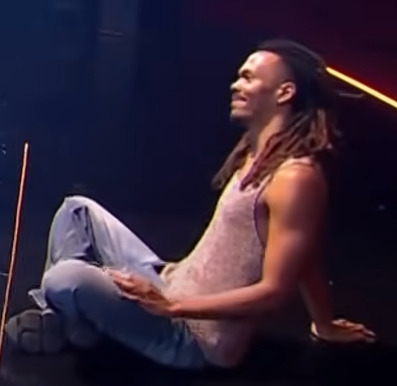
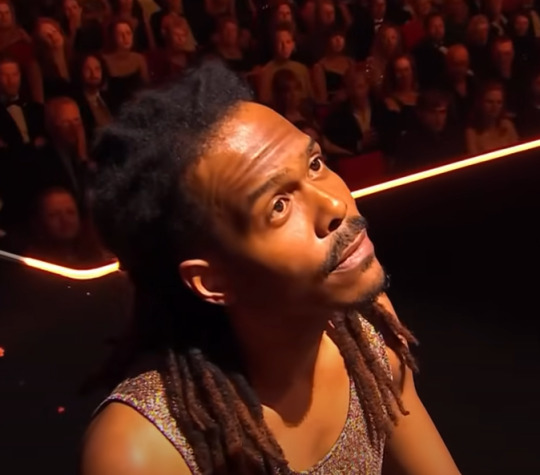

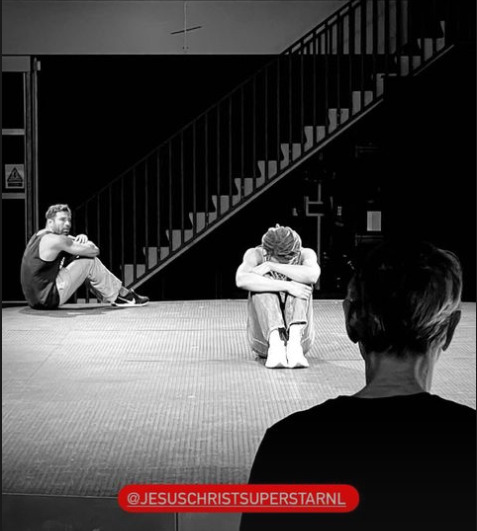
He was the most pathetic Jesus I've ever seen, I adore him <3
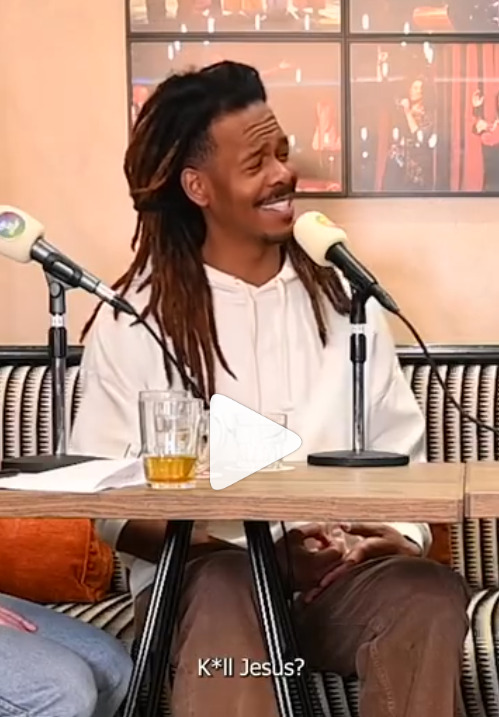
#go see him if you can#a really good prod in general too#cast is very solid#ivo van hove i am begging for a proshot#jesus christ superstar#jcs#jeangu macrooy
76 notes
·
View notes
Text






James Norton with the cast of A Little Life ( Luke Thompson, Omari Douglas, Zach Wyatt, Elliot Cowan, Nathalie Armin, Zubin Varla, Emilio Doorgasingh) and director Ivo Van Hove at the opening night after party at the Ham Yard Hotel, London, 30 March 2023
#james norton#a little life#luke thompson#omari douglas#zach wyatt#elliot cowan#nathalie armin#zubin varla#emilio doorgasingh#ivo van hove#events
35 notes
·
View notes
